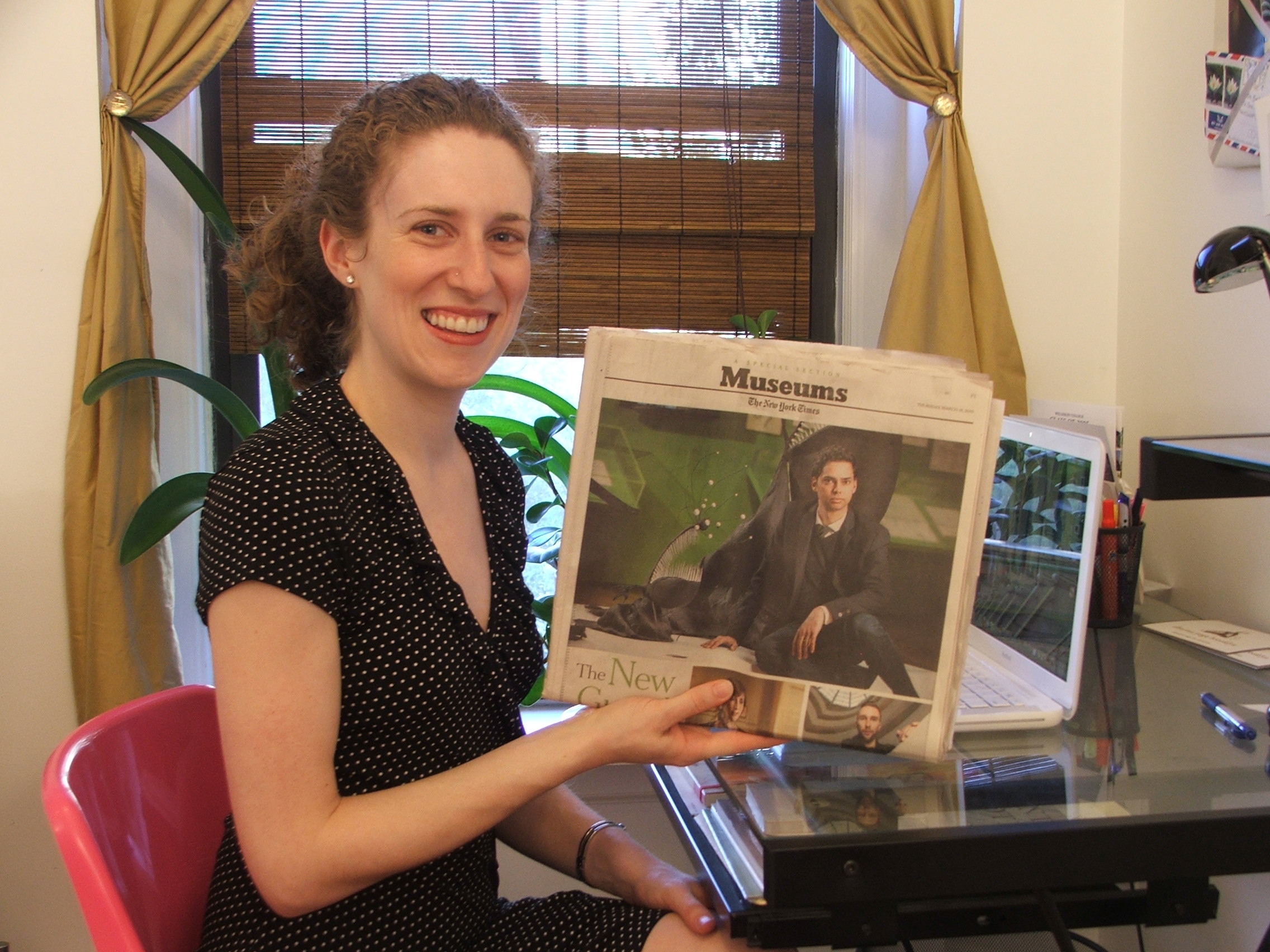 Alison Buchbinder ’05 is an account supervisor at Resnicow Schroeder Associates, the nation’s leading communications firm dedicated to arts and cultural organizations. Alison joined RSA 5.5 years ago, following graduate school. While at Wellesley, Alison double majored in American Studies and Theatre Studies, participated in the Wellesley in Washington Program, and interned at the Davis Museum.
Alison Buchbinder ’05 is an account supervisor at Resnicow Schroeder Associates, the nation’s leading communications firm dedicated to arts and cultural organizations. Alison joined RSA 5.5 years ago, following graduate school. While at Wellesley, Alison double majored in American Studies and Theatre Studies, participated in the Wellesley in Washington Program, and interned at the Davis Museum.
How has your career changed since you originally envisioned it at Wellesley? What other careers did you consider as a student?
This feels like a cohesive narrative now, but in my early 20s I felt like I was careening from one thing to another. I’m glad I followed my interests and said yes to different opportunities.
A career in PR wasn’t even on my radar when I was a student. I wanted to be a dramaturg–basically a historian of theatre. My specialty was helping directors set Shakespeare’s plays in other time periods.
Through the Wellesley in Washington Program and an internship at the Davis Museum, I discovered I loved the work museums do. After those experiences, I thought I’d be a curator at a history museum! At grad school, I discovered my temperament wasn’t suited for curatorial work, but that an external facing role would be a good fit. I actually stumbled upon the job listing for RSA on a job board. I submitted a resume and the rest is history. I found a career that’s perfectly suited to my interests and strengths.
How has Wellesley contributed to your career?
Wellesley gave me all of the tools I needed to be successful in my career. The College taught me tangible things, like how to write well and how to look at art. But, the intangible things I learned might be even more useful today, i.e. I learned how to advocate for my opinion while respecting someone else’s viewpoint; I learned how to navigate leadership hierarchies; and I learned how to mentor younger women at Wellesley. Mentoring junior staff is my favorite part of the job.
What is a typical work day or work week like for you?
The firm is fast-paced and pretty intense, which I like. I get to work between 9:30 and 10:00. If I haven’t triaged my emails on the subway, I spend an hour with my inbox–responding to client emails, answering media inquiries, giving feedback to my junior staff on documents, reading the culture sections of the newspaper and daily art trade round-ups to find out what’s breaking news in the art world, and flagging coverage or relevant news items for my clients. Then the calls start–I spend a lot of time on the phone talking to clients, giving counsel about communications issues, getting project updates, and evaluating media opportunities. I also spend a lot of time on the phone (or email) with journalists encouraging them to cover a story. If a journalist bites, then it’s another call or email with my client to get more information or to prepare them for an interview. And, so it goes. I try to leave the office between 6:30 and 7:30. If I’m working on a museum or expansion opening though, all bets are off.
During the week there’s generally a nice mix of being in the office and being out of the office–visiting venues to determine their suitability for press luncheons, escorting journalists on site visits, meetings with clients, and drinks with journalists.
What piece of advice would you offer students looking to get into PR?
Learn to write well. Learn to speak well. Have specialist knowledge in some field (art history, theater, biology, astronomy, whatever). It’s easy to teach communications, it’s not easy to teach subject matter. Journalists appreciate publicists who can speak the language of their specialty/beat.
What do you wish you had known as a student?
Grad school is not college part two. Seriously, college is like summer camp compared to grad school. It’s important that you really know what you want before going into a graduate program. It’s not a place to hide out for two years as you figure out your life. Also, think carefully about the debt you take on in graduate school. Those loans are with you forever.
Think broadly. For a time–in between wanting to be a dramaturg and a curator–I also wanted to be a professor. I didn’t actually ever want to be a professor, it turns out. And, it demonstrated a stunning lack of creativity on my part in thinking about my adult life. I was in a milieu (you’re in it now) where professors were the pinnacle of achievement. I wanted to be at the pinnacle of the community I was in as an 18-22 year old. You actually have to really love scholarship to be a professor.